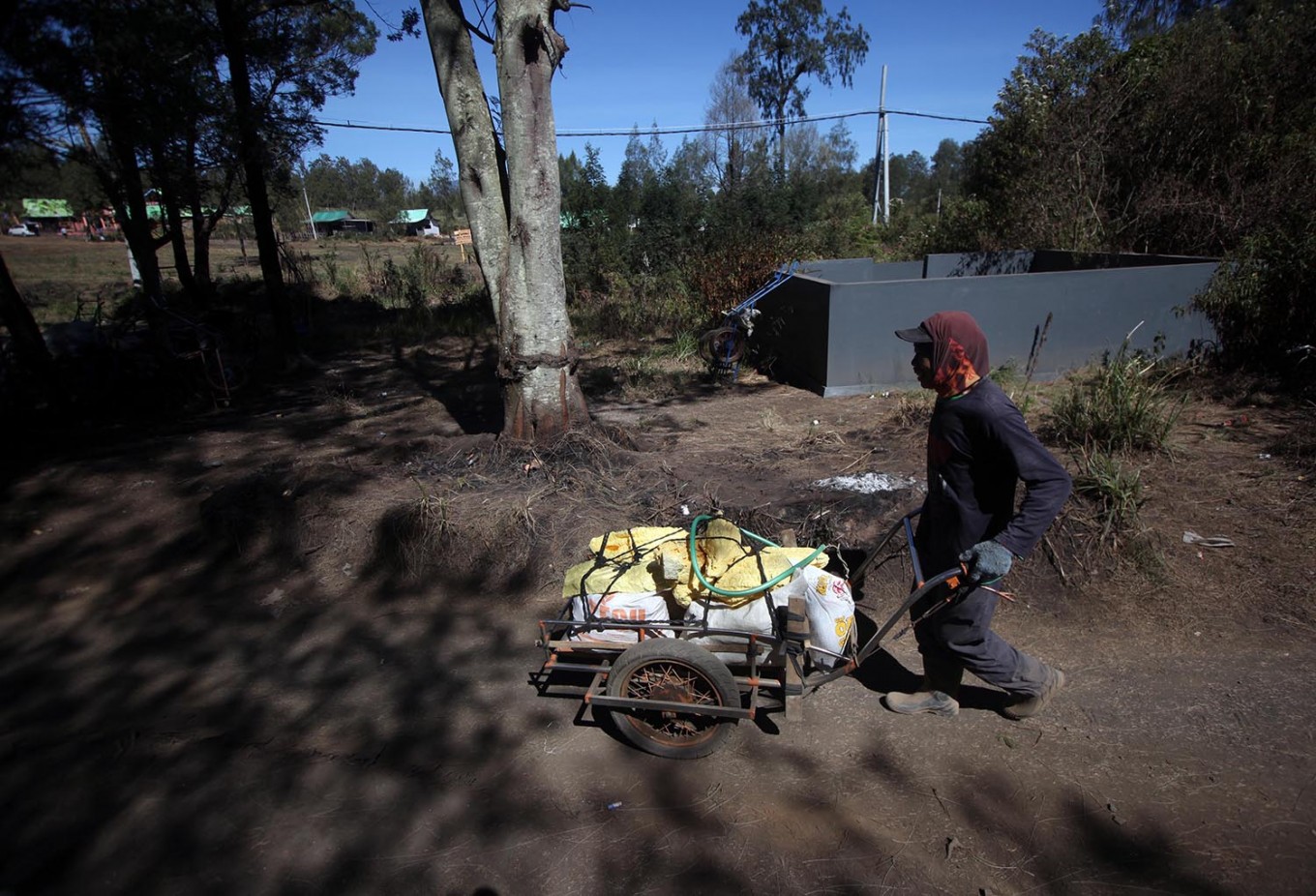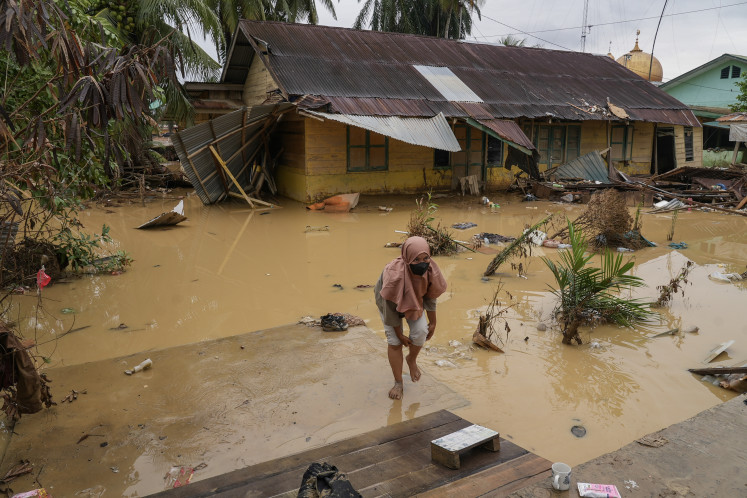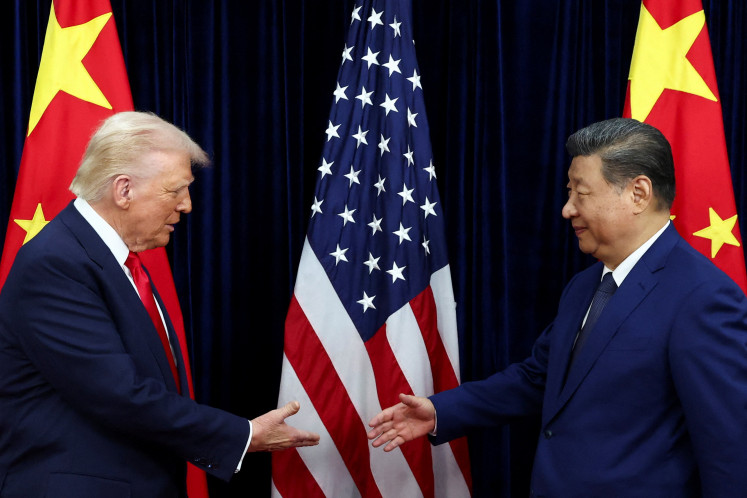Popular Reads
Top Results
Can't find what you're looking for?
View all search resultsPopular Reads
Top Results
Can't find what you're looking for?
View all search resultsIs Indonesia ready for IMO’s sulfur cap?
The exciting discussion regarding Indonesia’s presence in the IMO is the new sulfur cap regulation. The new IMO regulation, which took effect on Jan. 1, aims to slash the sulfur cap on fuel oil from 3.5 to 0.5 percent sulfur content to reduce sulfur oxides (SOx) from ship air emissions.
Change text size
Gift Premium Articles
to Anyone
I
ndonesia closed 2019 comfortably in the international maritime transport sector. The country was elected as a board member of Category C of the International Maritime Organization (IMO), the United Nations specialized agency responsible for the safety and security of shipping and the prevention of marine and atmospheric pollution by ships. The exciting discussion regarding Indonesia’s presence in the IMO is the new sulfur cap regulation. The new IMO regulation, which took effect on Jan. 1, aims to slash the sulfur cap on fuel oil from 3.5 to 0.5 percent sulfur content to reduce sulfur oxides (SOx) from ship air emissions.
Aside from that, this sulfur cap regulation only covers SOx while ignoring other parameters, such as nitrogen oxides (NOx) and greenhouse gases (GHGs). These parameters will also be the IMO’s future GHG targets for the shipping sector, with the first round due to take effect in 2025.
In July last year, the Transportation Ministry decided to only impose this regulation on foreign vessels because domestic ships could not afford to increase spending to buy low sulfur fuel oil (LSFO).
Originally, the regulation applied to all vessels, but within a month the transportation minister revised the ruling.
Currently, Indonesia is not ready to fully comply with the IMO sulfur cap. The main problem is the lack of LSFO production. Most domestic vessels are aged between 15 and 30 years and operate on high sulfur fuel oil (HSFO) or gas oil.
Globally, there are several choices for shipping players to follow this IMO regulation: increase LSFO usage, run on liquefied natural gas (LNG), or continue to use HSFO and process air emissions through an exhaust gas cleaning system or scrubber system.
In terms of the environment, a scrubber system might not be an excellent option as ships basically still produce highly polluting emissions. Waste prevention is better than waste treatment. Besides, this air pollution control option generates wastewater, which entails further treatment.
However, if the whole life cycle of a LFSO refinery is taken into account, then burning LFSO also comes at a cost in terms of GHGs. Thus, it seems that Indonesia will opt for the first choice: increasing LSFO usage.
Both the LNG and scrubber options require multimillion-dollar up-front capital. The investment includes procurement of new processing units and storage tanks (for LNG or wastewater), the one-off loss of revenue from laying up ships temporarily in dry dock to be retrofitted and the permanent opportunity cost of losing deck space and loading capacity to the new equipment.
According to the transportation minister, Indonesia will opt for the first choice this year. To enforce the new regulation, the main issue that needs to be addressed immediately is the availability of LSFO in ports. Nationally, state oil company Pertamina will produce LSFO.
Indonesia has ample stocks and production of HSFO, which is why consumption of HSFO will last a long time. The most significant HSFO producer, the Cilacap refinery in Central Java, produces around 1 million barrels per month or 30,000 barrels per day of HSFO.
To adapt to the IMO sulfur cap, Pertamina will now produce 380,000 kiloliters of LSFO per year. The main sales points are planned for Tanjung Priok seaport in Jakarta and floating storage in Balikpapan in East Kalimantan, Plaju in Central Java and Balongan in West Java.
Indonesia has been an LSFO exporter for some years, especially to one of the world’s largest bunkers, Singapore. The change of trade flow of LSFO needs to be changed to comply with the sulfur cap regulations.
It is compulsory for Pertamina to produce LSFO to fulfill domestic consumption. Once Indonesia can adjust to the new IMO rule, the further steps ahead can be planned accordingly: investment in non-oil fuels, like LNG and fuel cells.
***
Hafida Fahmiasari is a maritime economics manager and business development expert for North America at Royal Haskoning DHV. Annisa Fabatina is an environmental and sustainability consultant at Royal Haskoning DHV.











